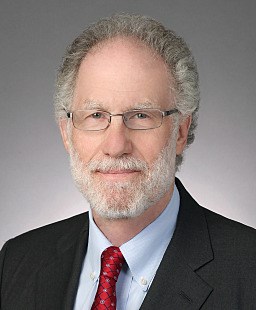5 minutes with... Bob Bauer
 Starting out, what did you expect from a career in the law?
Starting out, what did you expect from a career in the law?
While law practice was attractive to me on its own terms, I was always very interested in the path it might offer to a career in government and politics.
What do you consider to have been your big break?
The field of political law was in its infancy when I started to practice in this area, and so the costs of entry were low and the competition was limited. But I also had worked as a Capitol Hill intern before I entered college and made good friends who later helped me along – including providing me my first major clients in the field.
What differences do you see in today’s legal market compared to when you started?
There has been much anxiety and hand-wringing about law becoming more of a business and less of a profession – and maybe I should say that some even applaud this development. Allowing for the exaggerated claims on all sides, there is no doubt that there is truth to the observation, and the risks to lawyers and firms from this development are real. I have been with one firm for 30 years, with a recent break for my work in the government, and a large part of the reason is that it has prospered while keeping in view the importance of retaining, inculcating and building upon professional values and commitments.
What achievement are you most proud of?
In truth, I am tormented enough that I tend more toward dissatisfaction with my performance than pride in a self-proclaimed 'achievement'. Much of what I have accomplished, if accomplishment is the right word, has as much to do with fine colleagues and clients as it does with my own efforts or skills. The firm I practice in is outstanding; the White House Counsel's office I was privileged to lead is first-rate.
But defining achievement as work in which I took the most satisfaction, I would certainly say it has been service to this President and his Administration. And, second, I have very much enjoyed writing and teaching, and associating in this work with distinguished members of the legal academy.
What do you consider your greatest failure or regret?
A hard question: I am more troubled by nagging, multiple failures over time: a case that could have been handled better, advice that could have been better, sharper or clearer, mentoring of younger lawyers that could have been more effective, writing or statements I would like to have back for editing or to discard altogether.
"...in my second career, I would stand firm against the mob and work toward a world in which I and others could pun with impunity."
What law would you want to change, abolish or create?
I have taught and written about reforms of the political process that require reconsideration and reformulation from top to bottom, involving large questions to which the country will always return. The discussion gets caught up in partisan politics and ideological conflicts, of course, and it often suffers from oversimplifications and sloppy thinking, but it is a vitally important discussion, and we are at a fairly key turning point in one reform era, dating back to the l970s, that is now under considerable stress but invites the design of a new one.
Who is your legal hero?
I admire a host of visible leaders of the law, in and out of government, on or off the bench, but I tend to think the most of the lawyers I have worked with who, with little or modest press or public fanfare, represent in their practice, day in and day out, the best of the profession. They are thoughtful as well as skilled, possessing fine judgment to complement their strong training and intellects; they are highly committed to their clients but hold to the highest standards of ethical standards in representing them; and they commit time to the Bar and to their communities. Everything about this profession that matters and endures, some of it quite fragile and under continuous challenge, depends on them, which is why they are heroes.
What career would you have in your second life?
Teacher and poet – with some shot at succeeding in the former capacity and almost none in the latter. I also believe that punsters are under-appreciated – that is, when they are not scorned – and in my second career, I would stand firm against the mob and work toward a world in which I and others could pun with impunity.
How would you like to be remembered?
I would like to be remembered lovingly by my children and spouse, warmly by my friends, and indulgently by my former clients.
What are the major legal issues that surround a Presidential campaign?
To name a few: how to facilitate the raising of the necessary funds; how to facilitate the campaign's use of various media, new and old, to effectively communicate with voters; how to assist voters in exercising their rights and to protect them against suppressive practices; and how to support the invigoration of grassroots political engagement.